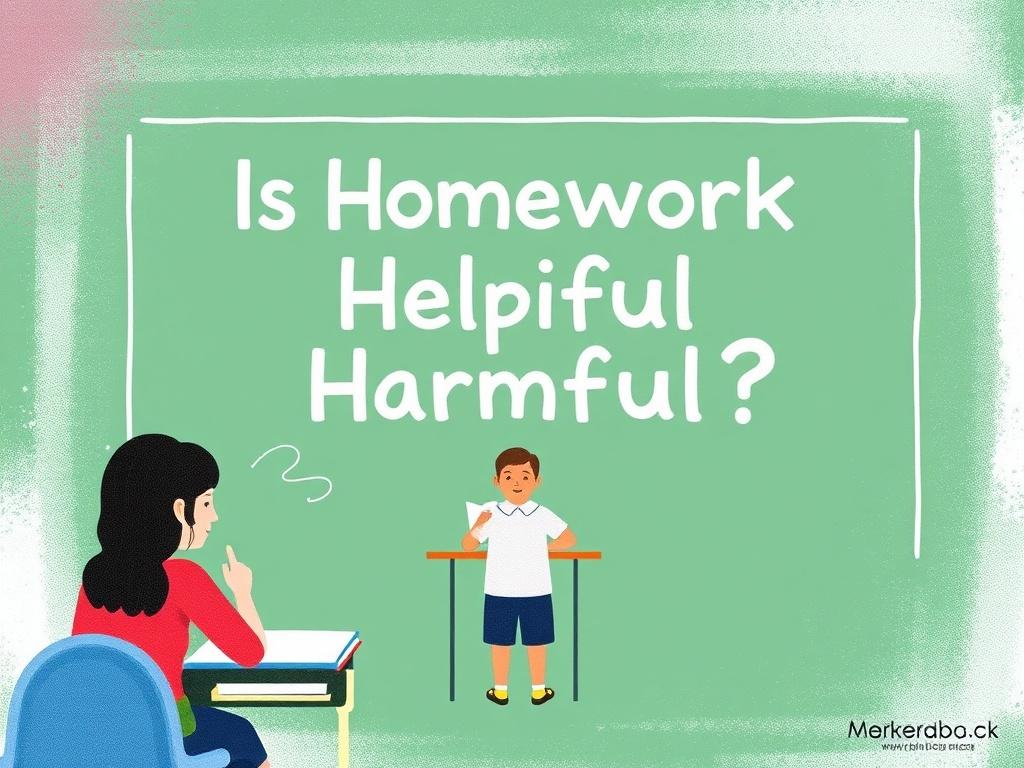SQLITE NOT INSTALLED
When it comes to education, few topics spark as much discussion—and sometimes heated debate—as homework. Almost every student, parent, and teacher has an opinion on whether homework is a necessary part of learning or an outdated practice that causes more stress than benefit. But what is the truth behind all the arguments? Is homework truly helpful or harmful? In this comprehensive guide, we’ll explore the many facets of homework, examining research, opinions, and practical experiences to help you form your own understanding.
The Origins of Homework: How It Became a Staple of Education
554cbfb52e06bcf230af8062d50fef6b.jpg
Before diving into the pros and cons, it’s important to look back at how homework emerged in educational systems worldwide. Homework as a formal practice has evolved over centuries. Its roots can be traced back to ancient Rome, where students were expected to practice their lessons outside the classroom. However, the modern concept of assigning daily or weekly homework tasks is largely a product of the 19th and 20th centuries.
Homework was initially designed as a tool to reinforce classroom learning and foster independent study habits. As classrooms grew larger and more diverse in the industrial age, teachers found that homework could help keep students engaged with material beyond the limited classroom hours. In recent decades, homework became a fixture not just for practice but as a crucial measure of academic rigor and accomplishment.
However, even as homework became widespread, debates about its effectiveness began to emerge. Critics have argued that excessive homework creates unnecessary pressure on children, while supporters maintain that it is essential for mastering skills and concepts.
What Does Research Say About Homework’s Effectiveness?
To understand whether homework is helpful or harmful, we should look at what educational research reveals. Over the years, numerous studies have examined the relationship between homework and student achievement, understanding, and well-being.
One landmark study by educational psychologist Harris Cooper found that homework can have a positive effect on student achievement, especially in higher grades. According to the research, students in middle and high school generally benefit more from homework than younger children.
Here’s a concise breakdown of key research findings on homework:
| Grade Level | Effectiveness of Homework | Primary Benefit | Potential Drawback |
|---|---|---|---|
| Elementary School | Minimal to Moderate | Building study habits and reinforcement | Loss of free play and increased stress |
| Middle School | Moderate to Significant | Skill mastery and responsibility development | Homework overload leading to anxiety |
| High School | Significant | Preparation for college and complex problem-solving | Potential burnout and reduced social time |
As the table shows, the benefits and drawbacks of homework can vary greatly depending on the student’s grade level. But beyond grades, what about student well-being and motivation?
The Positive Side: Why Homework Can Be Helpful
Homework is often praised for the advantages it offers learners. Let’s explore the main reasons why many educators and parents consider homework beneficial.
Reinforcement of Learning
Perhaps the most widely accepted benefit of homework is its role in reinforcing what students learn in class. When learners have an opportunity to practice skills or review concepts outside of school hours, the knowledge is more likely to “stick.” Repetition through homework can deepen understanding and help students identify areas where they need more support.
Development of Responsibility and Time Management
Homework encourages students to take ownership of their learning. Completing assignments on time fosters discipline, time management, and organizational skills—traits that are crucial for success not just in school but in life.
Allows for Individualized Learning Pace
In a classroom setting, teachers generally move at a pace that suits the majority. Homework gives students a chance to work through the material at their own speed, allowing extra time for challenging topics or opportunities to explore interests further.
Improves Parent-Teacher Communication
Homework can also serve as a bridge between school and home. Parents get a window into what their children are learning, enabling them to offer support or speak with teachers if their child is struggling. This engagement can lead to a more supportive learning environment overall.
Preparation for Higher Academic Demands
For older students, homework mimics the kinds of independent work they will encounter in college or careers. It helps build the habits of study and self-discipline needed to handle future academic challenges.
The Negative Side: When Homework Becomes Harmful
While homework can be helpful, it is not without significant criticisms. Many educators, parents, and students feel that homework can lead to negative consequences when misused.
Causes Stress and Anxiety
One of the most common complaints about homework is the stress it imposes on students. Excessive homework can cause anxiety, fatigue, and negative emotions around learning. For some students, pressure to complete assignments perfectly can result in sleepless nights and deteriorated mental health.
Reduces Free Time and Extracurricular Activities
Homework takes up time that could otherwise be spent on hobbies, family, socializing, exercise, or rest. A well-rounded life is essential for healthy development, and homework overload threatens to squeeze out this balance.
May Widen the Achievement Gap
Not all students have equal resources or support systems at home. Homework can exacerbate educational inequalities for children who lack quiet spaces, internet access, or parental assistance, particularly in low-income families.
Potentially Leads to Burnout
Long-term, excessive homework loads can cause student disengagement and burnout. When homework is seen as punitive or overwhelming, learners may lose interest in school and their academic motivation can dwindle.
Questionable Impact on Younger Children
For elementary students, the benefits of homework are less clear. Some experts argue that too much homework too early can interfere with natural curiosity and play, which are vital for a child’s overall development.
Balancing the Debate: How Much Homework Is Just Right?
Given the diverse viewpoints and research, striking the right balance in homework is key. Schools and educators often wrestle with how much homework to assign and what types are most effective.
One popular guideline is the “10-minute rule,” suggested by experts, which recommends 10 minutes of homework per grade level per night—for example:
- 1st grade: 10 minutes
- 3rd grade: 30 minutes
- 6th grade: 60 minutes
- 10th grade: 100 minutes
This guideline aims to provide meaningful practice without overwhelming students. However, some schools go beyond this, and each student’s needs vary.
What Makes Homework Effective?
To maximize homework’s benefits and minimize harm, several factors come into play:
- Quality over quantity: Homework should be purposeful and targeted to reinforce specific learning goals.
- Feedback: Timely and constructive feedback helps students understand and improve their work.
- Flexibility: Assignments should consider diverse student needs and circumstances.
- Integration with classroom instruction: Homework should connect clearly with what’s taught to prevent confusion.
Voices from the Classroom: Perspectives of Students, Parents, and Teachers

While research provides data, real-world experiences bring these points home. Let’s consider some common viewpoints.
Students
Many students express frustration when homework feels excessive or disconnected from actual learning. At the same time, some recognize that homework helps them prepare for tests or engage more deeply with subjects they enjoy. Students often want homework that is meaningful and avoids busywork.
Parents
Parents’ attitudes toward homework vary widely. Some see it as a valuable way to keep children disciplined and focused, while others worry about stress and the negative impact on family time. Many parents feel ill-equipped to help with today’s complex assignments, which can create tension at home.
Teachers
Teachers generally want to support student learning but often struggle with finding the right amount of homework. They must balance curriculum demands, standardized testing, and students’ well-being. Teachers appreciate homework that reinforces lessons without overwhelming students, though pressures from schools can sometimes push them toward assigning more work.
Alternatives and Innovations: Rethinking Homework
As the debate continues, many educators and schools are experimenting with alternatives to traditional homework that may be more engaging and effective.
Project-Based Homework
Instead of repetitive worksheets, some homework now focuses on projects that require creativity, problem-solving, and real-world connections. This approach can increase motivation and deeper learning.
Flipped Classrooms
In a flipped classroom model, students watch lectures or review material at home, freeing up class time for interactive activities. This shifts the homework from practicing problems to preparing to engage, changing the dynamic completely.
Homework-Free Policies
Some schools have experimented with no-homework policies, especially in early grades, to prioritize play and family time. While controversial, these policies reflect a commitment to balanced child development.
Technology-Enhanced Homework
Digital tools and educational apps allow for personalized and interactive homework that can adapt to students’ abilities and interests. Technology also enables immediate feedback, which can improve learning outcomes.
Summary: Is Homework Helpful or Harmful?

So, where does this leave us in the debate over homework? The answer isn’t black and white. Homework has the potential to be both helpful and harmful depending on several factors including the student’s age, the amount and type of homework, and the home environment.
Helpful aspects include:
- Reinforcing learning and building responsibility
- Encouraging independent study and time management
- Allowing personalized pacing and review of material
- Preparing students for future academic challenges
Harmful aspects include:
- Inducing stress, anxiety, and burnout
- Reducing free time for essential rest and extracurriculars
- Exacerbating inequalities between students
- Providing little benefit for younger children or poorly designed assignments
The best approach may be a balanced, thoughtful use of homework that keeps the individual student’s needs and well-being at the center.
Frequently Asked Questions (FAQs)
| Question | Answer |
|---|---|
| Does homework improve test scores? | Research shows homework can improve scores, especially in middle and high school, but quality is more important than quantity. |
| How much homework is appropriate for kids? | A general rule is 10 minutes per grade level per night, but this can vary based on individual needs. |
| Should homework be mandatory? | Homework is widely used, but some educators advocate flexible approaches or no homework policies, especially for younger students. |
| How can parents help with homework without doing it for their kids? | Parents can support by creating a quiet workspace, encouraging good study habits, and offering help only when needed. |
| What is the impact of homework on mental health? | Too much homework can increase stress and anxiety, so balance and support are critical. |
Final Thoughts: Navigating the Homework Debate in Today’s World
The discussion of whether homework is helpful or harmful is ongoing and complex. In today’s fast-changing educational landscape, recognizing that one size does not fit all is key. Stakeholders—including parents, teachers, and students—are encouraged to communicate openly and advocate for homework policies that prioritize learning, equity, and student well-being.
As you consider your stance or approach to homework, remember to weigh both its advantages and its costs. Ultimately, homework should be a meaningful tool that enhances education, not a burden that diminishes the joy of learning.
Whether you’re a student buried under assignments, a parent concerned about stress, or a teacher balancing curriculum demands, understanding the nuances of the homework debate empowers you to make informed decisions—and maybe even spark positive change.
